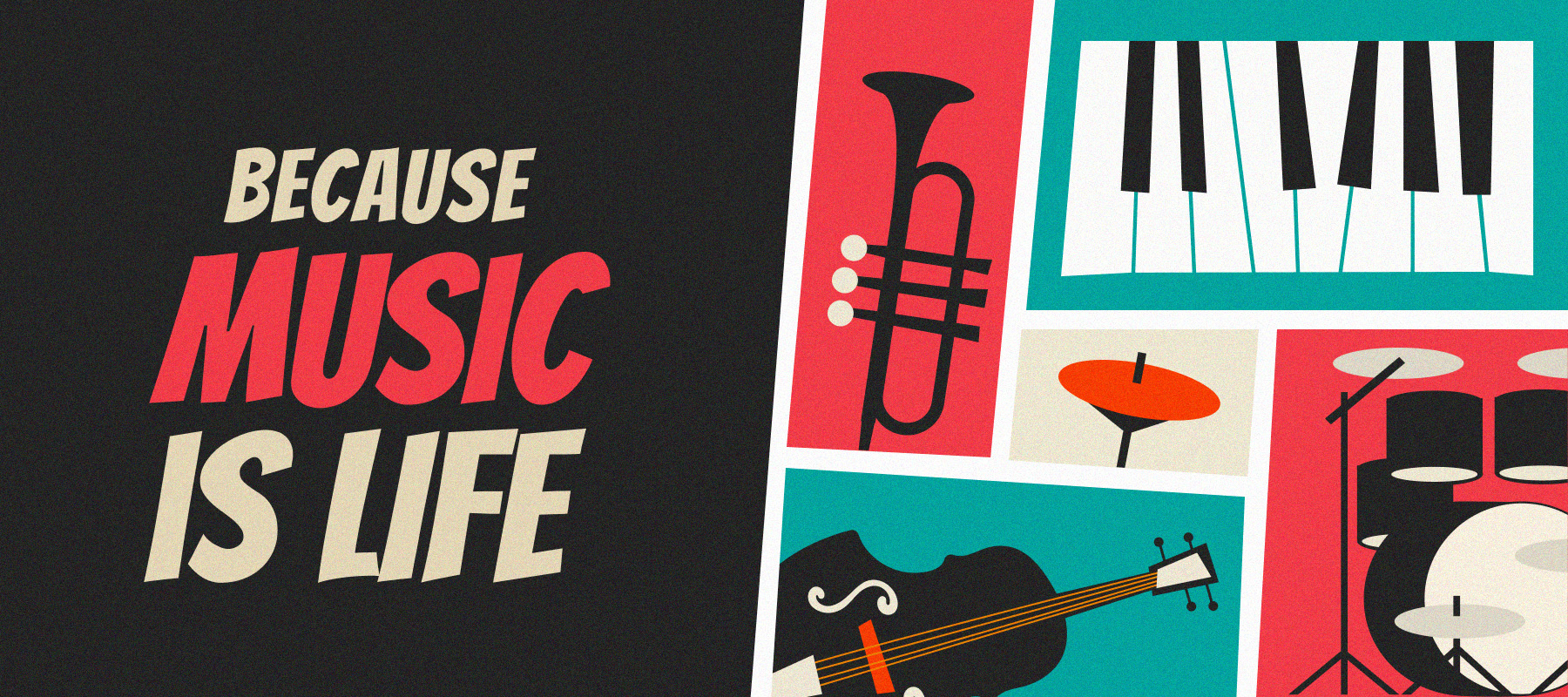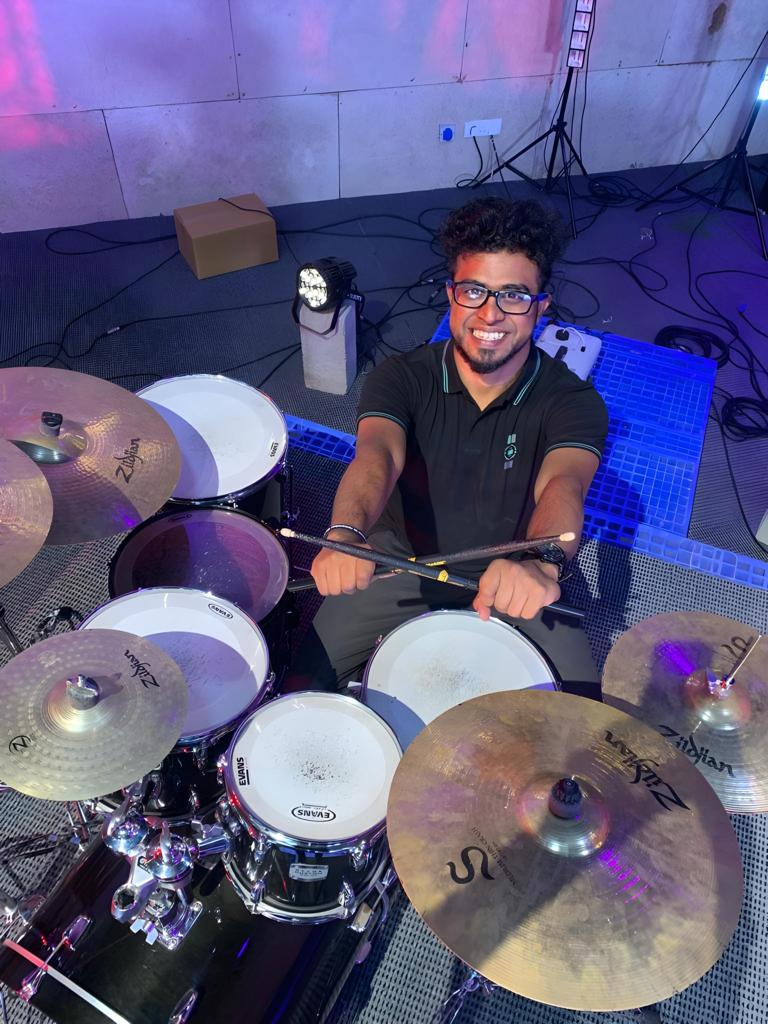
International Music Day was first celebrated on October 1, 1975, and since then, we have continued this tradition with love in our hearts and a song on our lips. Get on board by sharing your favourite tunes with your loved ones! You can share them with us too; just drop a comment. We would love to know what kind of music stirs your soul.
Coming back to the day in question. What is its significance? Obviously, to promote music across the globe, among all sections of society. But also to apply UNESCO’S ideals of peace and friendship, and promote the International Music Council’s activities.
Music is inclusive, liberating, comforting, unearths hidden emotions, creates nostalgia, brings people together, is a source of inspiration and endless entertainment, and so much more. On this special day, we spoke to Richard Simon, Assistant Manager – Audio Production, Media, a talented drummer and passionate BYJUite. Let’s hear his thoughts and experiences. As a bonus, he has some very valuable tips for budding musicians (especially drummers)!
During school, I started participating in carol singing competitions at church and in school. I slowly began to understand and appreciate how musical instruments played a vital role in shaping and structuring songs. Learning to create music, the process of mastering an instrument, or even improving one’s vocal skills, is a deeply rewarding experience.
Drumming offers a unique outlet for creative expression. I was inspired to drum as a way to express myself and communicate my emotions and ideas through rhythm and beats. Exposure to skilled drummers gave me that extra bit of motivation.

Drummers: Mike Portnoy, Nicko Mcbrian, Danny Carey, Lars Ulrich, and more.
Bands: Metallica, Iron Maiden, Lamb Of God, Dream Theater, Intervals, Plini, Tool, Arch Echo, Alt J, Polyphia, Killswitch Engage, Guns and Roses, etc.
Also Read: Foster workplace learning: Unleash productivity with the Feynman Learning Technique
I have a 10-step mantra:
Collaborating with other musicians during a practice session is a crucial aspect of creating cohesive and engaging music as a band. Here are some key principles and practices for effective collaboration during rehearsals:
Remember that effective collaboration and productive practice sessions take time and patience. Building a strong musical connection with your bandmates requires trust, open communication, and a shared commitment to achieving your musical goals.
Polyrhythms: Playing multiple rhythms simultaneously, creating intricate patterns
Cross-sticking: Striking the rim of the drum instead of the head, producing a distinct sound Paradiddle: A common drum rudiment (RLRR LRLL) used for various patterns
Flam: Striking both sticks simultaneously, with one slightly ahead of the other
Ghost notes: Softly played notes that add depth and dynamics to a groove

Here are some ways in which a strong sense of rhythm can be beneficial in everyday life:
1. Time management: A strong sense of rhythm can help with time management and punctuality. Drummers are often attuned to timing and can better estimate how long tasks or activities may take.
2. Physical coordination: Drumming requires excellent hand-eye coordination, and this skill can transfer to other physical activities, such as sports, dance, or even everyday tasks like cooking and driving.
3. Stress management: Rhythmic activities like drumming can be relaxing and stress-reducing. As a drummer, I find it easier to engage in sports activities like basketball, football, etc.
4. Communication: Rhythm can enhance communication skills. A person with a strong sense of rhythm may excel in public speaking or storytelling by using rhythm and timing to engage and captivate the audience.
5. Problem-solving: Drummers often need to think on their feet and adapt to changing musical situations. This ability to adapt and problem-solve can be valuable in various life scenarios.
6. Creativity: Rhythm is a fundamental element of creativity. A strong sense of rhythm can inspire creative thinking in various domains, such as art, writing, or problem-solving.
7. Teamwork: In a band, drummers must work closely with other musicians to maintain timing and cohesion. This skill can translate to effective teamwork and collaboration in professional and personal settings.
8. Attention to detail: Drumming requires attention to detail, particularly in complex rhythms. This attention to detail can extend to other areas of life, such as meticulous planning or organization.
9. Leadership: Drummers often provide the rhythmic foundation for a band, making them natural leaders in musical contexts. This leadership experience can be applied to leadership roles in other settings.
10. Emotional expression: Rhythm can be a powerful tool for emotional expression. Drummers may have a heightened awareness of emotional rhythms and cues in themselves and others, making them more empathetic and emotionally attuned individuals.
It’s important to note that while a strong sense of rhythm can provide advantages in various aspects of life, these benefits may vary from person to person depending on how they apply their musical skills and experiences to different situations. Nonetheless, the skills and attributes developed through drumming can have a positive impact on many facets of life beyond the musical realm.
Also Read: From office to offbeat: Exploring BYJUite Brendon Martin’s travel tales | World Tourism Day
Certainly! Here are some recommendations for drumming resources:
Books
“Stick Control for the Snare Drummer” by George Lawrence Stone: A classic drumming book for building hand technique
“Syncopation for the Modern Drummer” by Ted Reed: A popular book for developing coordination and reading rhythms
“The Art of Bop Drumming” by John Riley: Focuses on jazz drumming techniques and concepts
Websites
Drumeo: A comprehensive online drumming platform offering lessons, tutorials, and resources, for drummers of all levels
OnlineDrummer.com: Provides free drum lessons, notation, and play-along tracks, for various styles
YouTube: There are countless drumming tutorial channels, covering everything from beginner basics to advanced techniques
Teachers and lessons
Consider taking lessons from a qualified drum teacher or instructor in your area. In-person or online lessons can provide personalized guidance and feedback.
Online communities
Join online forums and communities like Reddit’s r/drums or Drummerworld to connect with other drummers, ask questions, and share experiences.
Remember that learning music is a lifelong journey, and there is always room for growth and improvement. Stay dedicated to your craft, keep exploring new musical horizons, and enjoy the process of becoming a skilled and expressive musician.
If you also have something interesting to share with us, this International Music Day, please leave us a comment.
Like what you read? Head to Life at BYJU’S to learn more about our work, people, and the stories that make us unique. To explore job opportunities, check out Careers at BYJU’S.
(This story has been put together by Storyweaver, Neha Dua)